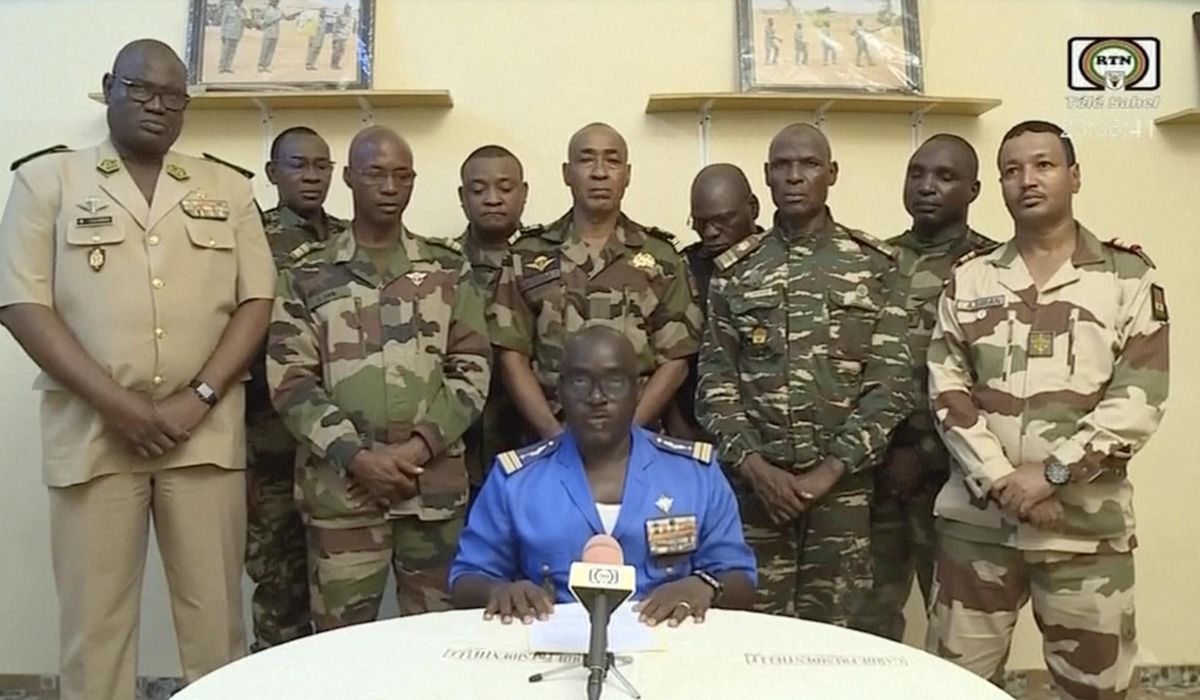


One of the Pentagon‘s key drone and surveillance bases in sub-Saharan Africa faces an uncertain future after Niger‘s military junta said this weekend that the American military presence in the country is no longer welcome.
U.S. relations with Niger have been tense since military officials last summer overthrew the elected government of President Mohamed Barzoum, a move the Biden administration condemned as a coup. Washington has since tried to establish a relationship with the country’s new rulers, but a three-day visit by Assistant Secretary of State Molly Phee and Marine Corps Gen. Michael Langley, the head of the Pentagon‘s African command, last week appeared to spark a new crisis in relations with Niamey.
Junta spokesman Col. Maj. Amadou Abdramane, reading a statement on state television Saturday, said a military cooperation agreement with the U.S. is no longer in force and that U.S. flights over Nigerien territory would no longer be permitted.
The spokesman stopped short of saying that U.S. personnel in the country must evacuate immediately. There were about 650 U.S. troops in the country at the end of 2023, according to the White House.
But the statement casts a major cloud over the future of a major air base operated by the Pentagon in Agadez, used for both manned and drone surveillance flights.
Jihadist groups linked to Islamic State and al Qaeda have secured a foothold in the region, and the base since its establishment in 2018 was considered a key asset in tracking and confronting militant movements.
Niger‘s military leaders have already ordered the departure of French forces that have long operated in the region, and have turned to Russian official and private forces for security assistance.
U.S. officials did not immediately comment on the most recent break, but the Nigerien government statement suggested the two sides have grown increasingly distant in recent months.
Col. Maj. Abdramane’s statement complained that the American delegation failed to follow diplomatic protocol or to provide Niger with the composition of the delegation or the planned topics for discussion.
He denounced a bilateral status-of-forces agreement signed with the U.S. in 2012, saying it was “not only profoundly unfair in its substance but it also does not meet the aspirations and interests of the Nigerian people.”
“Niger regrets the intention of the American delegation to deny the sovereign Nigerien people the right to choose their partners and types of partnerships capable of truly helping them fight against terrorism,” Col. Maj. Abdramane said. “Also, the government of Niger forcefully denounces the condescending attitude accompanied by the threat of retaliation from the head of the American delegation towards the Nigerien government and people.”
The Pentagon did not immediately respond to the announcement, but was reportedly aware of the statement and has remained in contact with members of the Nigerien military government.
• David R. Sands can be reached at dsands@washingtontimes.com.
